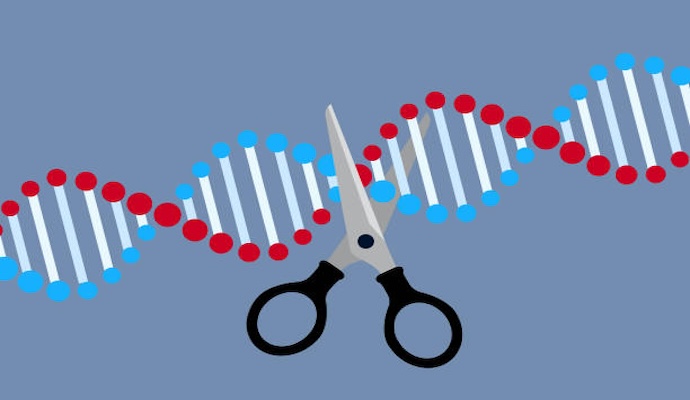Introduction
Human genome editing, particularly through technologies like CRISPR-Cas9, represents one of the most revolutionary advancements in biotechnology. By enabling precise alterations to the DNA of living organisms, these tools hold immense potential for treating genetic disorders, enhancing human health, and advancing scientific research. However, they also raise significant ethical, legal, and social concerns. This article delves into the ethical considerations surrounding human genome editing, exploring its implications for society, potential risks, and the ongoing debate about its responsible use.
The Science of Human Genome Editing
- Overview of Genome Editing Technologies: Human genome editing involves techniques that alter the genetic material of cells. CRISPR-Cas9, TALENs (Transcription Activator-Like Effector Nucleases), and ZFNs (Zinc Finger Nucleases) are among the most widely used tools. These technologies allow for precise modifications at specific locations in the genome, potentially correcting genetic defects or introducing new traits.
- Applications in Medicine: Genome editing has the potential to revolutionize medicine by correcting genetic mutations responsible for diseases like cystic fibrosis, muscular dystrophy, and sickle cell anemia. It also offers possibilities for developing new treatments and therapies.
Ethical Considerations
- Germline Editing: Editing the germline, which affects eggs, sperm, or embryos, raises ethical concerns due to its potential to make permanent changes that are passed on to future generations. This poses questions about the long-term consequences for individuals and the human gene pool.
- Arguments For Germline Editing: Proponents argue that germline editing could eliminate hereditary diseases and improve human health, offering a chance for a healthier future generation.
- Arguments Against Germline Editing: Critics raise concerns about the potential for unintended consequences, such as genetic mutations or off-target effects. There are also fears about the possibility of creating “designer babies,” leading to socio-economic inequalities and ethical dilemmas about human enhancement.
- Somatic Cell Editing: Editing the DNA in somatic cells, which affects only the individual and not their offspring, is generally considered more ethically acceptable. However, it still raises questions about safety, efficacy, and equity.
- Safety and Efficacy: Ensuring that genome editing is safe and effective is paramount. There are concerns about potential off-target effects, where unintended changes to the genome might cause adverse effects.
- Equity of Access: The cost and availability of genome editing technologies could lead to disparities in access to treatments, creating a divide between those who can afford these advancements and those who cannot.
- Ethical Guidelines and Regulation: Establishing ethical guidelines and regulations is crucial for the responsible use of genome editing technologies.
- International Guidelines: Organizations like the World Health Organization (WHO) and the National Academies of Sciences, Engineering, and Medicine have proposed guidelines for human genome editing, emphasizing the need for rigorous oversight, transparency, and public engagement.
- Regulatory Frameworks: Different countries have varying regulations regarding genome editing. Some countries have embraced it for research and therapeutic purposes, while others have imposed strict restrictions or bans.
- Public Perception and Consent: Public perception plays a significant role in shaping the ethical discourse around genome editing. Ensuring informed consent from individuals undergoing genome editing procedures is essential.
- Informed Consent: Patients must be fully informed about the potential risks and benefits of genome editing, as well as the uncertainties involved. This is especially important in clinical trials and experimental treatments.
- Public Engagement: Engaging the public in discussions about genome editing can help address ethical concerns, build trust, and ensure that societal values and norms are considered in decision-making processes.
- Impact on Human Identity and Diversity: Genome editing raises questions about human identity and diversity. The ability to alter genetic traits could influence societal views on what it means to be human and affect the value placed on genetic diversity.
- Human Identity: The capacity to modify or enhance human traits challenges traditional notions of human identity and raises philosophical questions about the nature of being human.
- Genetic Diversity: Ensuring that genome editing does not lead to a loss of genetic diversity is important for maintaining the robustness and adaptability of the human population.
Case Studies and Examples
- CRISPR Babies Controversy: The case of Chinese researcher He Jiankui, who announced the birth of genetically edited twins in 2018, sparked global controversy and debate about the ethics of germline editing. The incident highlighted the need for stringent ethical guidelines and oversight.
- Therapeutic Use of Genome Editing: Clinical trials involving genome editing for treating genetic disorders like sickle cell anemia and muscular dystrophy demonstrate the potential benefits of somatic cell editing. These trials also underscore the importance of rigorous safety assessments and ethical considerations.
Future Directions
- Advancements in Technology: Ongoing research aims to improve the precision and efficiency of genome editing tools. Enhancements in technology could address some of the ethical concerns related to off-target effects and safety.
- Ethical and Legal Frameworks: Developing comprehensive ethical and legal frameworks is crucial for guiding the responsible use of genome editing technologies. Ongoing dialogue between scientists, ethicists, policymakers, and the public is essential for addressing emerging ethical issues.
- Global Collaboration: International collaboration and consensus on ethical standards can help harmonize regulations and ensure that genome editing is used responsibly and equitably across different countries.
Conclusion
Human genome editing holds remarkable potential for advancing medicine and improving human health. However, it also raises complex ethical considerations that must be carefully addressed. By establishing robust ethical guidelines, engaging in public dialogue, and ensuring equitable access, society can navigate the challenges associated with genome editing and harness its benefits responsibly.









